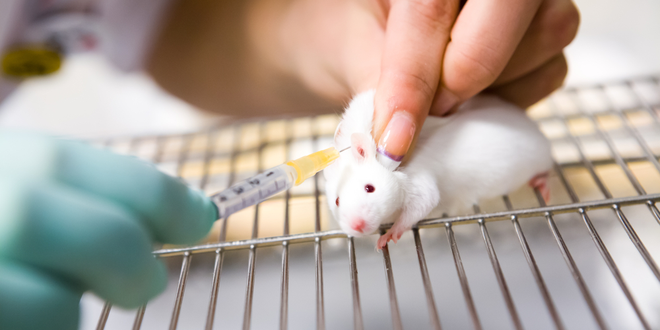The Torah teaches and demands that humans treat animals with respect and kindness; aside from not causing them unnecessary pain, one must even feed one’s animals before sitting down to dinner and allow them to rest on Shabbat.
The Covid-19 pandemic exemplifies the danger to humans from disease – including zoonoses that originate in animals – and the potential inherent in animal research for human healing. The race for the development of drugs and vaccines during the pandemic points up the importance of using animals for research in medical and other scientific fields.
A major step in advancing these efforts, which can have far-reaching implications in the eradication of the pandemic epidemic, promoting public health, healing and extending life is conducting animal experiments before these developments can be used in humans. Through its Animal Experimentation Council, Israel’s Health Ministry has for many years collected annual data from hospitals, universities and research institutes on animal experimentation with the aim of promoting studies while minimizing harm to animals from fish to mammals, including primates.
According to the new report covering 2019, some 98% of all animal experimentation was conducted on lower animals (408,412 of them) such as rodents (mice and rats, 68% of the total), fish (25%) and chickens and other fowl (2%). The small minority involved higher mammals including primates.
Compared to the year 2018, there was a decline of experimentation on 26,000 creatures; the decrease occurred in all animal groups except cold-blooded animals (fish), in which there was an increase. The use of other animal species was essentially similar in 2019 to that of the previous year of activity. These data, said the ministry, continues to indicate a rigorous application of animal experimentation principles that are accepted in Israel and around the world whereby the lowest animals in the developmental scale that can meet the research needs in question can be used.
In 2019, 3,537 active animal study permits were granted. Of these, 48.9% were aimed at promoting health and medicine, 48.9%
to promote health and preventing human suffering; 8.6% to test objects or to manufacture materials; and 0.9% for medical education. Last year, the experimentation committees issued 2,043 new permits to conduct animal studies.
Before permission is granted, requests are carefully examined to ensure that the minimum number of animals will be used to provide a scientifically valid result for the research in question, as well as minimizing the suffering of the animals in the study, as set down by international law and rules.
About a third of the applications were approved in the first round of discussion by the permit committees, while most requests were approved after several rounds of discussions (two to six), in which case researchers were required by the permit committees to amend the number of animals or to change the type of animal. About 16% of research requests discussed by committees were rejected or the decision has not yet been handed down.
The council said it takes maximum effort encouraging the rehabilitation of large animals (such monkeys, carnivores, farm animals and wildlife, not including rodents and chickens) so that they can live normally, freely and without pain or disability after the experiments have been concluded. Animal rehabilitation rates in Israel, the council continued, are prominent here, and Israel has been a leader in their rehabilitation for years compared to data published worldwide.
In 2013, the ministry set up a unique effort to provide research grants to develop alternative methods for animal experiments. Funded aim at developing methods that will reduce the use of animals without compromising the results of the studies and their attacks. So far, 19 projects have been funded in this important field. In 2019, a joint call was launched for the Health and the Science and Technology Ministries for funding more projects in 2020 that would reduce the use of animals for experimentation without compromising the scientific validity of the studies.
Source: Israel in the News

